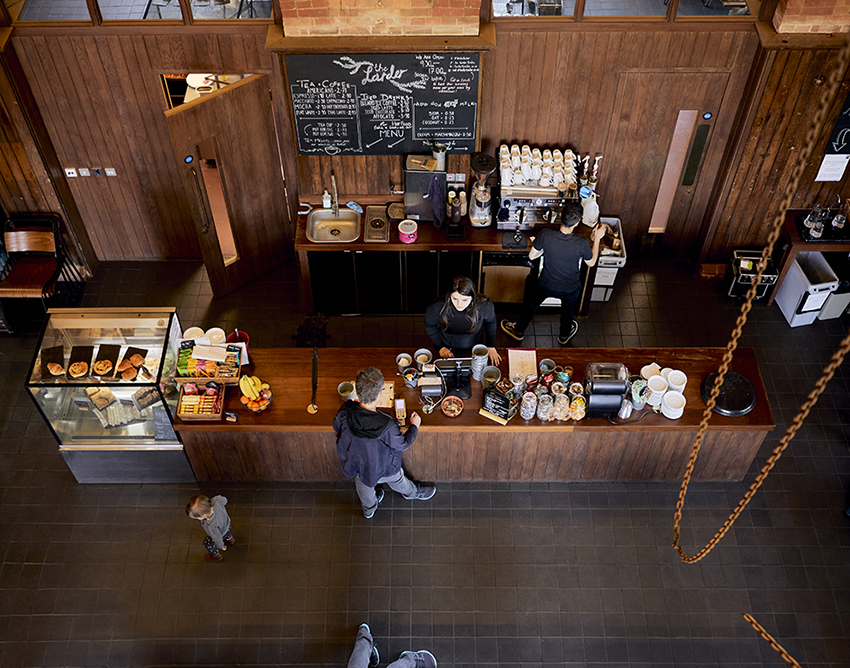Our five sites have now all reopened. It’s been challenging but we’ve learned a lot along the way. We’ve introduced a zone-working system, dividing the now empty coffee shops into three zones, the Kitchen zone, the Barista zone and the Service zone where orders are taken and customers are served. With three staff working we have one in each zone, with tables used to separate them and drinks and food passed over them. This keeps social distance during the shift and has given staff the confidence to return to work.
We’ve moved to card-only payments, which helps remove the virus transmission risks but is great as it speeds up service and means there’s no long cashing up process or trips to the bank for banking or collecting change. We’ve moved to 100% takeaway packaging and takeaway cups, which is not great environmentally but there’s no other way we could operate under the current guidelines. We’ll be keeping both these changes in place for the foreseeable future as it has really helped to simplify our operation.


“WE'RE NOW REINVENTING OURSELVES”
As part of the Boughton’s Business Bounce Back feature you can read in issue 124, Dan Beharall from The Larder reveals how he has overcome the challenges of reopening a multisite business. You can also read the full digital edition via the link below
THE LARDER


THE LARDER, DAN BEHARALL
ONE – KEEP IT CASHLESS
Going cashless made us realise how much time was spent dealing with cash!
TWO – PLAY TO YOUR STRENGTHS
Focus on what you can do without relying too heavily on suppliers
THREE – BE FLEXIBLE
Don’t try to plan too far ahead as things are still changing so rapidly
Dan’s top tips to bounce back
ONE – KEEP IT CASHLESS
Going cashless made us realise how much time was spent dealing with cash!
TWO – PLAY TO YOUR STRENGTHS
Focus on what you can do without relying too heavily on suppliers
THREE – BE FLEXIBLE
Don’t try to plan too far ahead as things are still changing so rapidly
Through this process we realised we were also using so many external suppliers pre-lockdown, creating so much complexity – and expense – in our business. During the recent period we’ve worked hard on our own recipes and are selling only home-made cakes – our spiced coconut chai cake is proving really popular and again, customers seem happy with a narrower range if it’s high quality.
Budgeting and forecasting have now gone out of the window – we don’t know how big the social distancing impact will be once guests can sit in again and of course the feared second wave of virus infections could completely change everything. So planning has to revolve around being flexible and nimble and being very focussed on the business. We really want to survive this and to do that we must manage our costs at the micro level and embrace alternative incremental revenue streams, such as our new delivery site (thefastfoodie.co.uk). But we still need to be willing to invest where it’s going to be a clear-cut benefit.
As a business all this has given me a rare opportunity to calmly rethink, re-invent ourselves operationally, and ensure we are positioned to come out of this stronger.
Budgeting and forecasting have now gone out of the window – we don’t know how big the social distancing impact will be once guests can sit in again and of course the feared second wave of virus infections could completely change everything. So planning has to revolve around being flexible and nimble and being very focussed on the business. We really want to survive this and to do that we must manage our costs at the micro level and embrace alternative incremental revenue streams, such as our new delivery site (thefastfoodie.co.uk). But we still need to be willing to invest where it’s going to be a clear-cut benefit.
As a business all this has given me a rare opportunity to calmly rethink, re-invent ourselves operationally, and ensure we are positioned to come out of this stronger.

